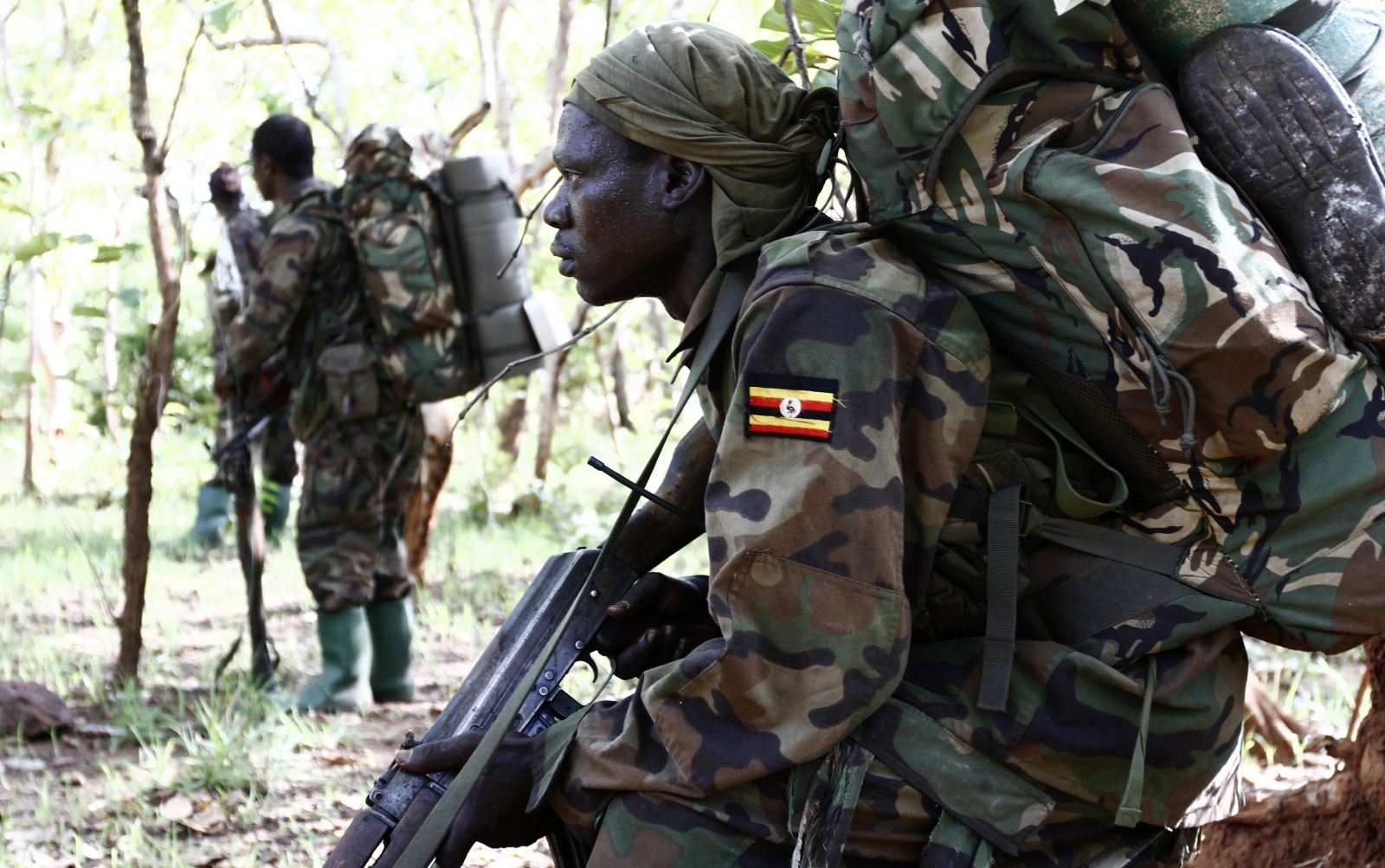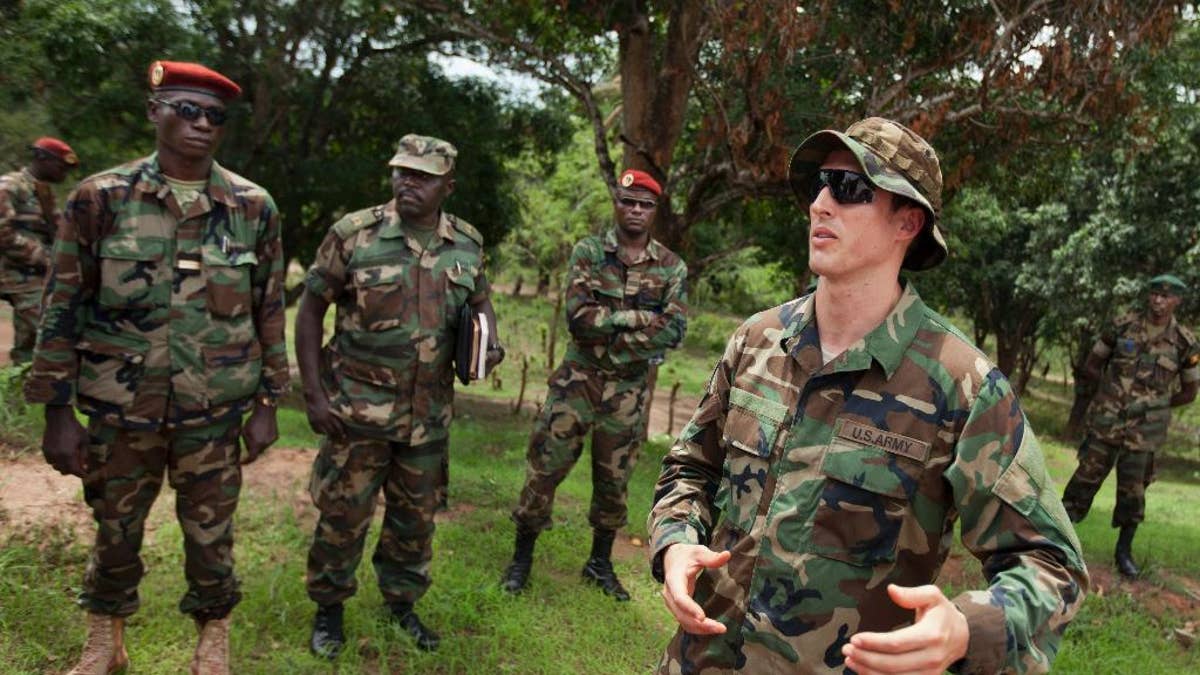Ugandan Military - Garo Online reported today that 1,000 Ugandan People's Defense Force soldiers entered the Somali capital Mogadishu over the weekend.
The battalion, led by Colonel Paul Mwanguguzi, replaces the XXII Battle Group, which completed its tour of duty last Friday. The new group completed its training earlier this month at the Peace Support Operations Training Center in Singo, Uganda.
Ugandan Military

These forces were deployed in an attempt to bolster the weak domestic police and military against the al-Qaeda-affiliated Al-Shabaab group.
Uganda Sends Fresh Troops To Somalia
Speaking about the XXII Battle Group, Brigadier General Paul Lukech, commander of Ugandan forces in Somalia, said the soldiers showed a "deep sense of commitment and sacrifice".
“In the struggle to pacify this country, we have lost our comrades. In the struggle to pacify this country, we have injured Mobande [Uganda city]. We still look at the scars of what happened. African, Somali brothers and sisters,” Lukacs continued.
"One of the pillars of our doctrine is Pan-Africanism. And this is the agenda that brought us to this mission. We have no other interest than that. Our main goal in coming to Somalia is to help the Somalis get back to where they were. The they do.That was about 30 years ago.
Al-Shabaab fighters detonated a car bomb last week before attacking a military base in southern Somalia, killing about 27 soldiers. In the wake of the car bomb attack, the United States launched airstrikes against al-Shabaab, though the number of casualties is unknown.
Kenya Hands Over Two Ugandan Military Officers To Their Authority
The group is fighting to overthrow the central government and impose its own rule based on its strict interpretation of Islamic law. It killed thousands of Somalis and hundreds of civilians across East Africa in a decade-long insurgency.
The Ugandan military announced last year that it would withdraw its forces from Somalia at the end of last year, following heavy casualties to its military personnel and a UN plan to withdraw African Union troops. (AU) from Somalia.
Some 20,000 troops are currently on duty in Somalia as part of the UN-backed battle against al-Shabaab. Uganda has sent about 6,000 troops to Somalia since 2007.

. If the images are credited to us, this license also applies to them. What does it mean? For other licenses, contact us. Troops of the Uganda People's Defense Force are seen on the Mbau-Kamango road in the Democratic Republic of the Congo's Bani district on December 8, 2021. Sébastien Kitsa Musayi/AFP via Getty Images
Ugandan Military Doesn't Rule Out Further Operations Against Adf Rebels In Congo
On May 26, at a polling station in Uganda's Omoro district, a crowd gathered around ballot boxes placed under a mango tree along a narrow dirt road. Old men in faded coats, young men in hand-me-down soccer jerseys, and women with babies in swaddled shoulders have come out of their homes, hiding in the tall grass, to watch election officials count the votes for the election. period of parliament.
Beside them were some security guards: two ordinary policemen in khaki uniforms. An anti-terrorist police officer wearing a hat and sunglasses. A soldier in camouflage pants; A riot police officer in a blue uniform, who wasn't a soldier, but sure looked like one. and four hooded men crouched in the back of a van. Most of them carried weapons.
This scene in a seedy polling station reveals the simple truths about how the Ugandan state functioned during the presidency of Yoweri Museveni, a former rebel who seized power in 1986. Soldiers seem to be everywhere – even civilian institutions now look like military institutions. Museveni reinforces his political power with a variety of security forces, including intelligence agencies and police units, but it is the military rationale that prevails. Under Museveni's leadership, the military is inching deeper into Ugandan politics and society.
The presence of the army everywhere shows the weakness of the government. The modern state of Uganda was created by British colonialists, who did nothing to create an active bureaucracy. In the 1970s, the then dictator of Uganda, Idi Amin, managed the institutions that existed on the territory. Faced with a legacy of government weakness, Museveni has repeatedly turned to the military, the only institution he truly trusts. Unlike the police or civil service, which he inherited from previous regimes, the army is a direct descendant of the rebel forces that he personally built from scratch.
Uganda People's Defense Force Soldiers With Ugandan
"Muswini has always been a military man who believes that the best way to organize, to control people, to dominate society, is to have a gun," said Musa Khisa, a Ugandan political scientist at North Carolina State University. "But I think militarization has recently become more blatant and more pervasive because Museveni has been undermined as a leader [by] the many forces that have been tried against him."
These forces include tectonic and population pressures. According to the Uganda Bureau of Statistics, three quarters of Ugandans are under the age of 30 and there are no decent jobs to pursue. People's frustration with corruption and inequality has found a voice in opposition politics, which is evident in the support of singer-turned-politician Bobby Wine and retired soldier Kiza Besigye. Besigye, who fought alongside Museveni in Bute but has since run in four presidential elections, said: “[Musevini's] initial goal was to build machinery, the military machine, to maintain power and expand it.
Museveni has always been a military man who believes that the best way to organize, control people and dominate society is to have a gun.

The election is a clear example of the large role of the army in the country. In Omoro, soldiers raided the local offices of an opposition party the night before the midterm elections, beating activists, stealing money and confiscating documents, Human Rights Watch reported. On the day of the vote, police and plainclothes gunmen arrested opposition activists, including a member of parliament. Other recent midterm elections have been marred by arrests, corruption and credible allegations of vote-rigging. Such a brutal and shameless crackdown is reminiscent of the 2021 presidential election, when government forces harassed, arrested, kidnapped, tortured and killed opposition supporters.
U.s. Deputy Defense Secretary Ash Carter Meets With U.s. And Ugandan Troops On Kisenyi Peacekeeping Base,
But the army order goes further. Consider the police. In the early years of his rule, Museveni openly questioned the loyalty of police officers: he once complained that they would rather vote for a cow than him. His solution was to place the force under the command of army generals, such as General Kale Kiyhora, who served as overbearing police chief from 2005 to 2018. Although a civilian, Martin Okoth Ochola, is now the chief of force, many analysts think that real power rests with a group of soldiers in high-level positions.
Julius Udoh, a career police officer who served as Kiyhora's deputy until Udoh's retirement in 2011, said that recruiting army officers "only degrades the police job ... because these people are not trained in police service". Because there are fewer and fewer civilian policemen in high positions, he added. "I think this is how the police establishment will die because those who are professionals are demotivated," he said.
And it's not just the police force that is filled with military personnel. Museveni appointed three former army commanders to ministerial posts, along with six serving or retired army officers. Both are Ministers General of the Interior, as well as senior officials of the ministry. Immigration control has been handled by soldiers on duty since 2019.
Militarization is spreading beyond the security sector and into public service institutions, said Silvi Namwaz, a researcher at the Center for Human Rights and Peace at Makerere University in Kampala, Uganda. The military has entered many of these fields over the past decade, duplicating or replacing the work of existing civilian agencies and civil servants.
Uganda To Send 1,000 Troops To Congo As Part Of Regional Force
For example, a soldier is the head of the president's "anti-corruption unit". In Lake Victoria, the military brutally enforces fishing laws. The military guards toll booths, fights locusts, runs factories, herds herds, chases street vendors, and trains everyone from paramilitary wildlife rangers to plumbing engineers. Large swathes of the economy, from seed distribution to mineral development, are now driven by Operation Wealth Creation, a vast military program.
As the military has expanded, so has its budget. Security spending in Uganda has tripled in the past four years, reaching a total of $1.2 billion (Uganda Sh4.7 trillion) for the 2020-2021 financial year. In addition, Uganda's parliament regularly approves supplementary budgets - a type of unplanned spending reserved for unforeseen crises - to transfer undisclosed funds to the army.
Army officials have justified their excesses by lamenting bureaucratic failure and arguing that the army supports economic development. "If these civilian entities were actually following their procedures, following the law, acting as expected, we would have nothing to do," said Brig. Gen. Felix Colagié, the military spokesman, who was formerly the chief political commissar of the army. He compared what he called "embezzlement" by civil servants and the police to the sacrifices he believes soldiers make for their country. We paid a price to see Uganda as it is today. However, our compatriots - to whom we have entrusted the management of the country - are simply doing their own thing. Should we fold our hands and surrender?"

But the military also has a long history
Post A Comment:
0 comments so far,add yours